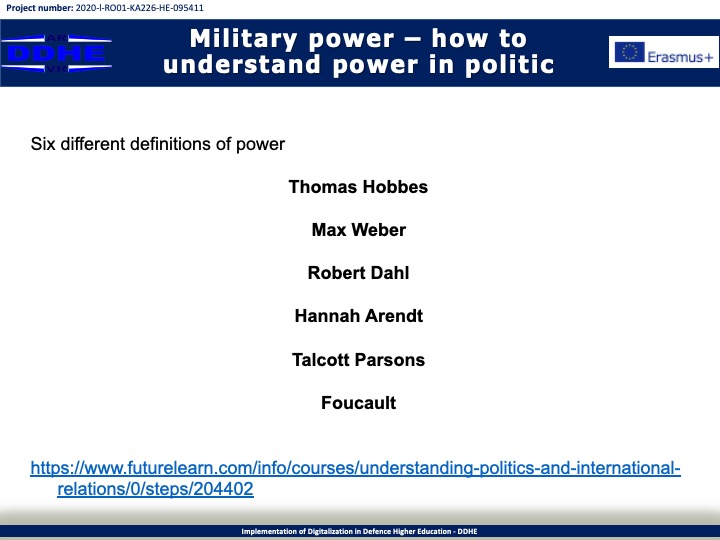Six different definitions of power

Thomas Hobbes – ‘power over’ ‘power simply is no more, but the excess of the power of one above that of another’
Hobbes, T. (1969) The Elements of Law, Natural and Politic. Cass, London.
Max Weber Power is ‘the probability that one actor within a social relationship will be in a position to carry out his will despite resistances’
Weber, M. (1978) Economy and Society. University of California Press, Berkeley.
Robert Dahl – ‘intuitive idea’ ‘A has power over B to the extent that he can get B to do something that B would not otherwise do’
Dahl, R.A. (1957) The Concept of Power. Behavioural Science, 2, 201-215.
Hannah Arendt Power is ‘the ability not just to act, but to act in concert’
Arendt, H. (1970) On Violence. Harvest Books, Orlando and London.
Talcott Parsons Power is a ‘mechanism operating to bring about changes… in the process of social interaction’
Parsons, T. (1963) On the Concept of Political Power. Proceedings of the American Philosophical Society, 107, 232-262.
Foucault ‘Power as such does not exist’ but power ‘needs to be considered as a productive network which runs through the whole social body’
Foucault, M. (1982) The Subject and Power. Critical Inquiry, 8, 777-795.
Treść jest rozpowszechniana na licencji Pewne Prawa Zastrzeżone Uznanie Autorstwa Na Tych Samych Warunkach 4.0